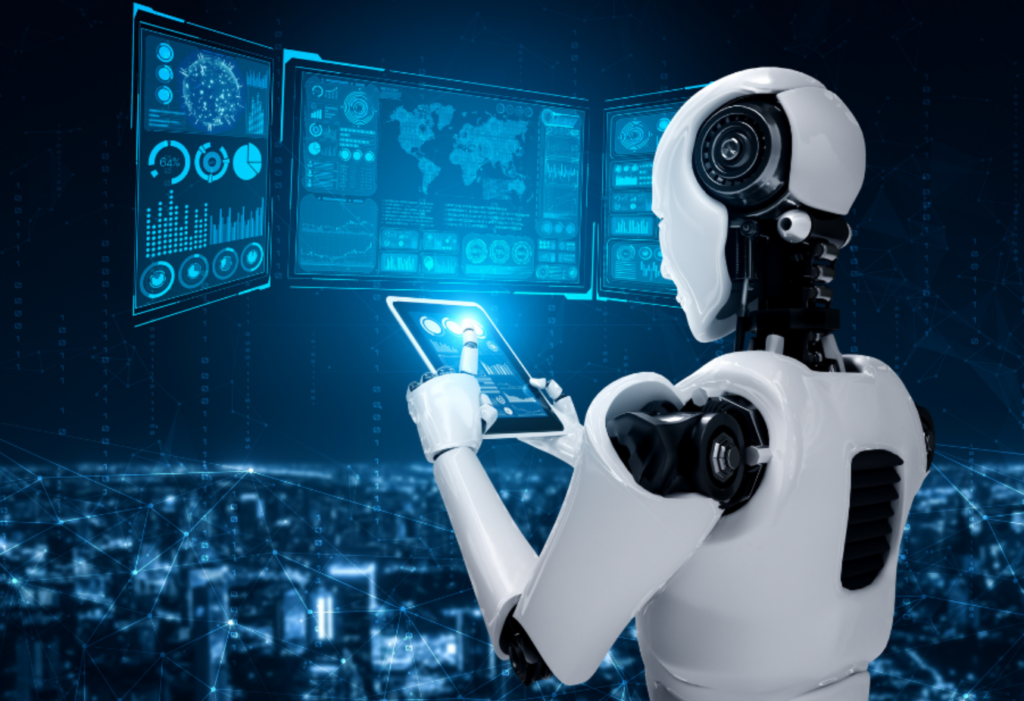In the ever-evolving digital marketing arena, the quest for higher conversion rates is relentless. As businesses strive to convert visitors into customers more efficiently, the emergence of artificial intelligence (AI) and machine learning (ML) is revolutionising the approach to Conversion Rate Optimisation (CRO). These technologies are not just enhancing existing strategies; they’re redefining what’s possible, offering unprecedented insights and automations that are transforming the CRO game.
The Rise of AI and Machine Learning in CRO
AI and machine learning have begun to permeate various aspects of digital marketing, and CRO is no exception. These technologies excel at analysing vast amounts of data, identifying patterns, and making predictions at a scale and speed beyond human capability. This capability is particularly valuable in CRO, where understanding nuanced user behaviors and preferences is crucial.
1. Automated Personalisation
One of the most significant impacts of AI and ML in CRO is their ability to drive personalised experiences at scale. Unlike traditional segmentation, AI-driven personalisation can tailor content, recommendations, and offers to individual users in real-time, based on their behavior, preferences, and interaction history.
2. Predictive Analytics
AI and ML also enhance CRO through predictive analytics, forecasting future user actions based on historical data. This ability allows marketers to anticipate needs, optimise user journeys, and present the most effective calls-to-action (CTAs) before a user even realises they want them.
3. A/B Testing and Multivariate Testing
While A/B and Multivariate Testing are a cornerstone of CRO, AI and ML elevate its effectiveness by optimising the testing process. These technologies can automate test setup, dynamically allocate traffic to the best-performing variations, and even predict outcomes early in the testing phase. This not only speeds up the optimisation cycle but also ensures more accurate, data-driven decisions.
Real-time Decision Making
Real-time decision-making powered by AI represents a transformative capability in the realm of marketing and business optimisation. The key strength lies in AI’s proficiency in processing and analysing vast amounts of data with remarkable speed, enabling businesses to make informed decisions on the fly. This capability is particularly impactful in the context of marketing campaigns, where the dynamic nature of user behavior and market trends demands swift and adaptive strategies.
With real-time decision-making, businesses can achieve a level of agility that was previously challenging to attain. Traditional approaches to Conversion Rate Optimisation (CRO) often relied on periodic reviews and adjustments based on historical data. However, AI’s real-time processing allows for immediate responses to changing circumstances. For instance, if there’s a sudden shift in user preferences, market dynamics, or competitor strategies, AI algorithms can swiftly adapt marketing campaigns to optimise for the highest conversion rates.
This dynamic approach is especially valuable in the digital landscape, where user interactions and market trends evolve rapidly. AI systems can continuously monitor and analyse data streams, identifying patterns and anomalies in real-time. This empowers businesses to tailor their marketing efforts promptly, ensuring that they stay aligned with current consumer behaviors and market demands.
Furthermore, real-time decision-making enhances the overall responsiveness of marketing strategies. Whether it’s adjusting the content of an email campaign, fine-tuning website elements, or modifying social media ads, AI can autonomously make these adjustments to enhance performance without the need for manual intervention.
Challenges and Considerations

While the benefits of integrating AI and ML into CRO are clear, there are challenges to consider. The complexity of these technologies requires a certain level of expertise to implement and manage effectively. Additionally, the quality of insights generated is directly tied to the quality of the data fed into these systems, emphasizing the need for robust data governance practices.
The Future of CRO with AI and Machine Learning
Looking forward, the role of AI and ML in CRO is set to expand. As these technologies continue to evolve, we can expect even more sophisticated personalisation, predictive capabilities, and automation. The future of CRO lies in harnessing the power of AI and ML to create more intuitive, user-centric experiences that not only meet but anticipate the needs and desires of users.

